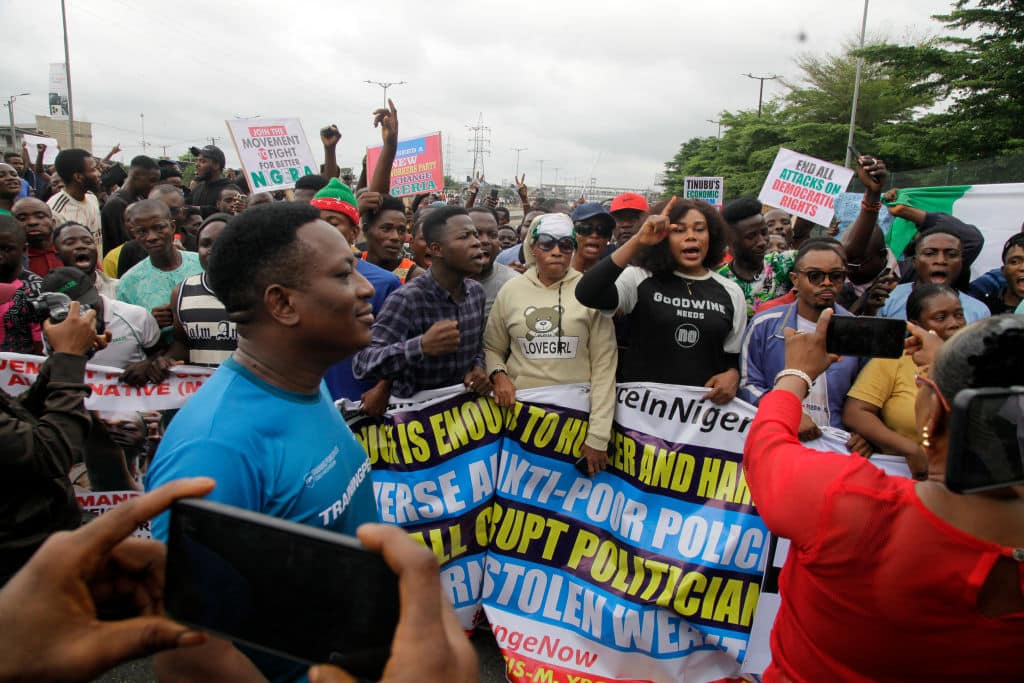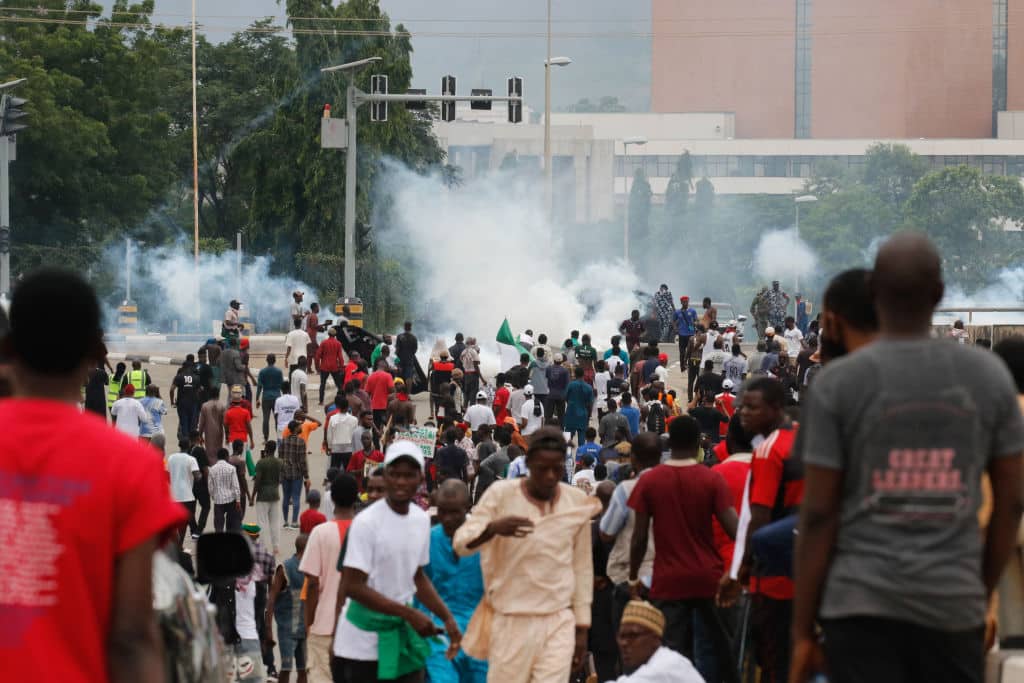This wave of protests is reminiscent of the 2020 #EndSARS movement in the West African nation.
Nigerians are embarking on a nationwide 10-day protest over governance and the soaring cost of living, joining a surge of youth-led demonstrations that have spread across some African nations in recent weeks.
These protests come amid a challenging economic backdrop. Nigeria’s headline inflation rate surged to 34.19% in June, the highest since March 1996. This increase is driven by the removal of fuel subsidies and a weakening local currency. Food inflation, which makes up the bulk of Nigeria’s inflation basket, hit a record high of 40.87% in June, driven by price hikes in bread, cereal, potatoes, and fish.

The protest, which began in the capital, Abuja, has largely been peaceful but has turned violent in Northern Nigeria. In Kaduna, protesters set ablaze the headquarters of the Kaduna State Traffic Law Enforcement Agency (KASTLEA) and looted its property and surrounding private residences. In Kano, where one individual was reportedly shot dead and another was critically injured by stray police bullets, protesters looted a shop and vandalized the Nigerian Communications Commission (NCC) Digital Industrial Park, which was scheduled for launching next week.
Police have reportedly used tear gas on protesters in Lagos, Abuja, and Bauchi, and a curfew has been declared in Borno. Six people have been reported dead, and scores injured in Niger of Northern Nigeria.
Loading...
Banks, most of which closed early, emailed customers advising them on alternative channels for banking transactions. Meanwhile, businesses generally shut down in southeastern states like Ebonyi and Enugu, which have not yet reportedly joined the protest.
“The protests reflect a growing frustration among citizens, especially the youth, who are increasingly unwilling to tolerate the government’s failure to address basic economic needs,” Nigerian analyst Moses Adeolubodun tells FORBES AFRICA, adding that “there is an urgent need for policy reforms and effective governance to alleviate the economic burdens on the populace”.
Just three days before the protests began, President Bola Tinubu signed into law the new National Minimum Wage Act. This came nearly two weeks after an agreement with the organized labor unions — the Nigeria Labour Congress (NLC) and Trade Union Congress of Nigeria (TUC) — on raising the minimum wage from N30,000 ($18.06) to N70,000 ($42.14).

Meanwhile, in other parts of Africa too, youth protests are intensifying. Last week, young Ugandans took to the streets to protest alleged corruption and demanded the resignation of the parliament speaker. Police in Uganda reportedly shut down the march and arrested more than 70 people.
In Ghana, the high court has blocked civil society groups from holding protests in the capital, Accra. These groups sought to demand more action from President Nana Akufo-Addo on corruption and living conditions and to protest delays in signing an anti-LGBT bill into law.
In Kenya, more than 50 people have been killed, and nearly 700 arrested in a police crackdown on demonstrations in mid-June. Protesters began taking to the streets to oppose tax increases proposed by President William Ruto. Following the unrest, Ruto fired his cabinet and scrapped the tax bill.
Loading...
